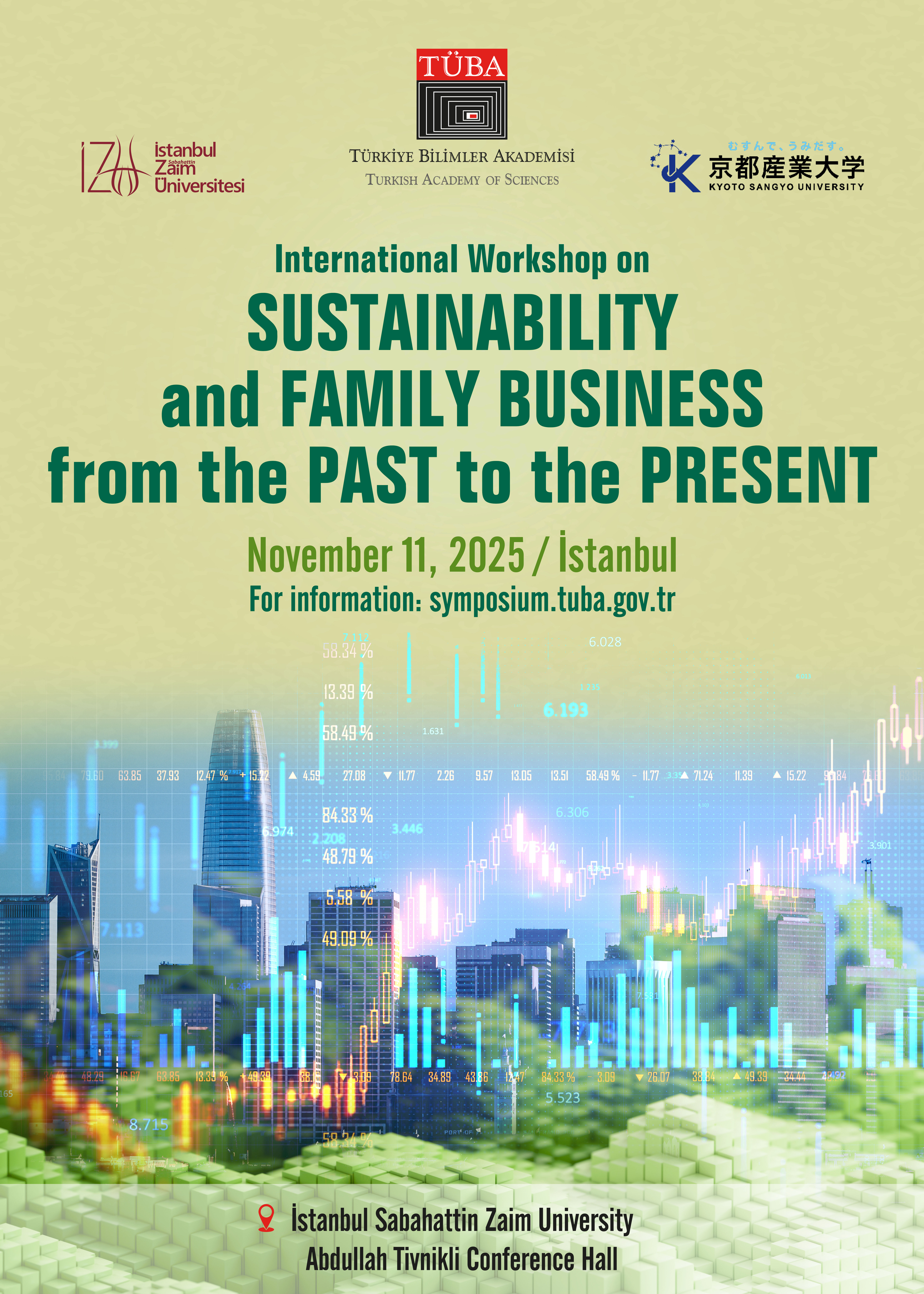International Experts to Discuss Family Businesses and Sustainability
 Organized by the TÜBA Sustainable Development and Finance Working Group in cooperation with Istanbul Sabahattin Zaim University (IZU) and Kyoto Sangyo University, the international workshop titled “Sustainability and Family Business from the Past to the Present” will be held on 11 November, hosted by IZU.
Organized by the TÜBA Sustainable Development and Finance Working Group in cooperation with Istanbul Sabahattin Zaim University (IZU) and Kyoto Sangyo University, the international workshop titled “Sustainability and Family Business from the Past to the Present” will be held on 11 November, hosted by IZU.
Bringing together academics, experts, industry representatives, and policymakers, the workshop will examine the evolving role of family businesses in promoting sustainability from a multidisciplinary perspective and will also feature online participation. The program, to be held at the IZU Abdullah Tivnikli Conference Hall, will include talks by internationally renowned scholars, thematic paper sessions, and interactive panels. Sessions will use case studies from countries and regions such as Japan, Europe, China, Indonesia, Malaysia, Kyrgyzstan, and Türkiye to present comparative assessments and practical examples. The workshop will also offer practice-oriented insights for business owners, consultants, and policymakers. It will seek answers to questions such as: “How can family businesses adapt to global environmental challenges?”, “What are the most effective governance structures that ensure intergenerational sustainability?”, and “How can public policies strengthen the long-term economic and social contributions of family businesses?” Uniting historical analysis with forward-looking strategies, the international workshop aims to contribute to both the scientific literature and to policy and business practice in the field of sustainable family enterprises.
Speaking about the workshop, TÜBA President Prof. Dr. Muzaffer Şeker stated that family businesses are among the world’s oldest and most resilient socio-economic institutions and play a significant role in local, national, and global economies. He added: “Standing out with their unique cultural values, governance models, and long-term outlooks, family businesses have the potential to make substantial contributions to sustainability. As enterprises that transmit values through long-standing traditions, family businesses should pay attention not only to social issues but also to environmental matters. At this point, they are institutions that must also assume social responsibility. From time to time, it is observed that these businesses struggle to keep pace with change and transformation. In this context, I believe the workshop will yield important outputs.”
He noted that the workshop will bring together perspectives from different disciplines such as economics, business, environmental studies, finance, sociology, and history, and will evaluate how family businesses have progressed on issues such as environmental responsibility, intergenerational transition, innovation, and corporate ethics from past to present. President Şeker also stated that the historical perspective presented will be discussed in terms of how it can shed light on today’s global sustainability agenda. In addition, he announced that the papers presented and selected within the program would be compiled into a thematic volume of significance for the field.

